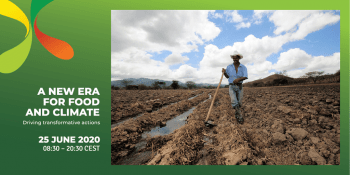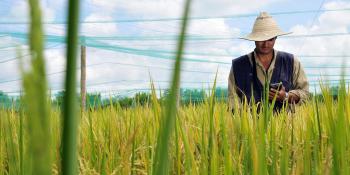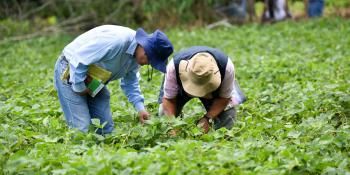Farmers share experiences on community-based sheep breeding in Southern Ethiopia
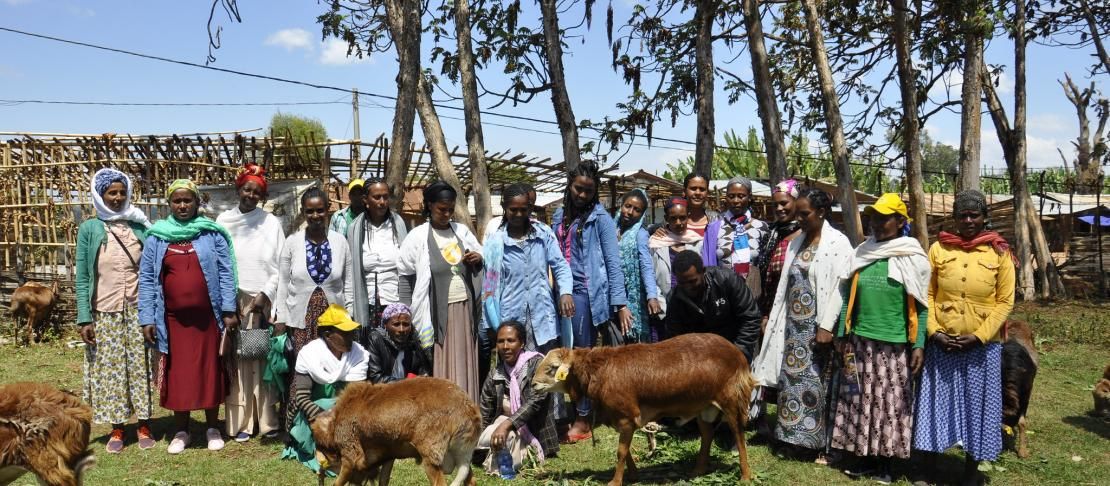
A leading community-based breeding program shares learning experiences with women farmers in Southern Ethiopia.
Ethiopia’s rural population depends on rain-fed, small-scale, subsistence farming for their livelihoods. Given this context, these agricultural systems are evermore vulnerable to climate-related risks. In Bonga, located in Southern Ethiopia, agriculture is the community’s backbone, using mixed low-input crop-livestock farming systems. Sheep production is an integral part of the area’s production system.
Community-based breeding programs (CBBP) are participatory farmer systems that allow for community ownership, design and implementation of breeding techniques and genetic improvement. They serve as important learning platforms for agro-pastoralist societies.
A decade ago in Bonga, the Boqa-Shuta CBBP was launched by the Bonga Agriculture Research Center, the International Center for Agricultural Research in the Dry Areas (ICARDA), the International Livestock Research Institute (ILRI) and the Austrian University of Natural Resources and Life Sciences (BOKU). This CBBP strives to address sheep breeding challenges such as shortages of breeding rams, inbreeding and negative selection.
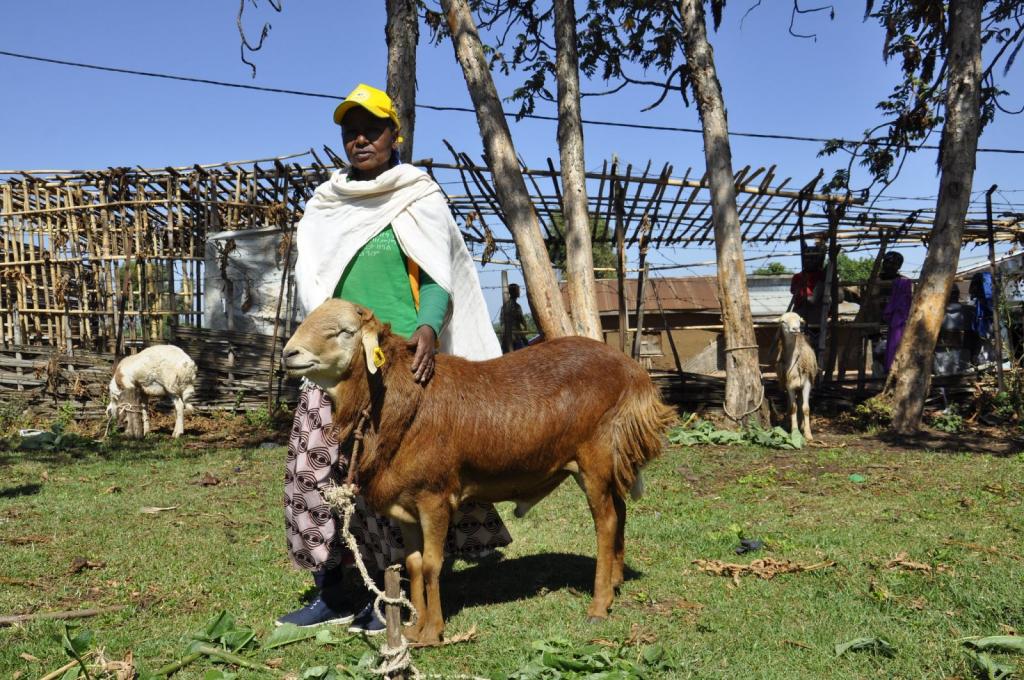
A farmer in Boqa-Shuta's CBBP in Southern Ethiopia. Photo: G. Ambaw (CCAFS)
To spread their reach, the CGIAR Research Program on Climate Change, Agriculture and Food Security (CCAFS), in collaboration with ICARDA, is establishing an all women CBBP in Doyogena climate-smart landscape in Southern Ethiopia. This CBBP aims to promote gender equality and enhance the adaptive capacity of livestock-based livelihoods.
Exchanging community-based breeding experiences for deeper learning
While Boqa-Shuta is one of the leading CBBPs in Ethiopia, Doyogena's CBBP is still in its early stages. Therefore, in February 2019, a learning exchange was organized between Doyogena’s female farmers and Boqa-Shuta CBBP, so the former could learn from first-hand experiences about small ruminant improvement and management.
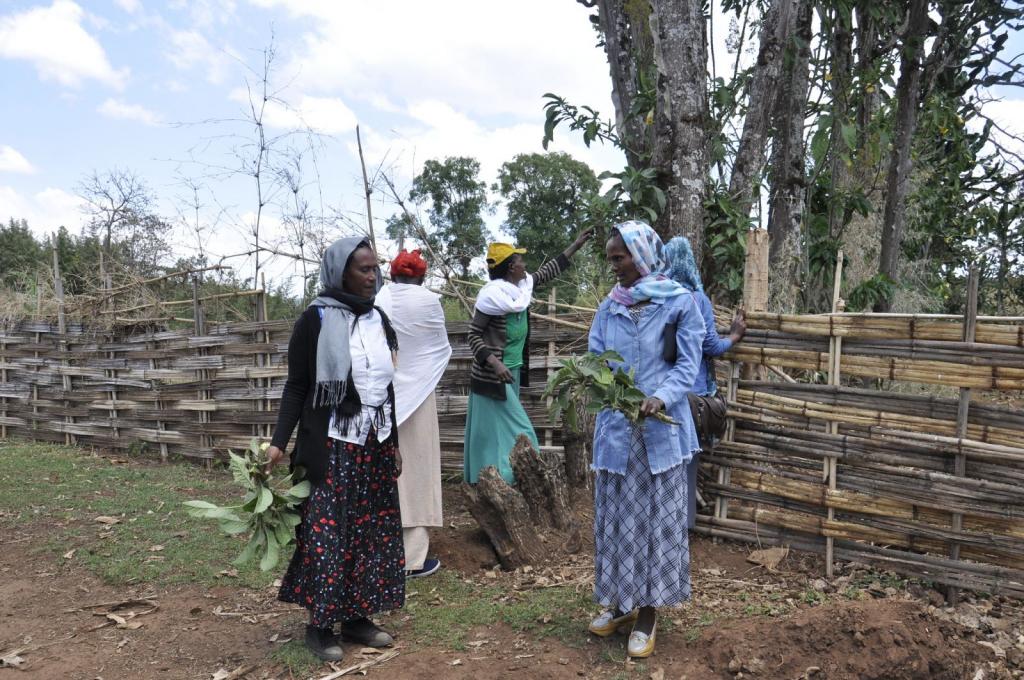
Farmers share insights during the learning exchange about small ruminant breeding and management in Ethiopia's SNNPR. Photo: G. Ambaw (CCAFS)
Boqa-Shuta CBBP has undergone quite a transformation. At its inception, Bonga’s community breeding program had 67 male members, two female members and a budget of ETB 34,600 (about USD 1,200). Boqa-Shuta CBBP now has a membership of 334 farmers, 32 of which are women farmers, and a capital of ETB 1,100,100 (about USD 38,250). These farmers have observed a substantial improvement in sheep size and income, with sires weighing up to 67 kg and fetching ETB 6,700 (about USD 230) at market.
Sheep are like my mother and father. My life depends on sheep. They are a source of cash to meet my basic needs like food, clothes and medicine and to supplement crop production”.
Aselefech Yeshaw
The CBBP members now have breeding rams in their flock, are able to sell surplus livestock to surrounding communities and purchase educational supplies as well as housing materials for their families with the additional income. Members are also able to buy larger livestock such as oxen from the sheep sales. The female farmers from Doyogena village were inspired to replicate the efforts of Boqa-Shuta in their CBBP.
Boqa-Shuta could have benefited many more rural women if gender equity had been properly mainstreamed. Nonetheless, some women members of the CBBP have made impressive progress. Aselefech Yeshaw, a champion female farmer from Boqa-Shuta, has sold seven improved breeding rams and one ewe since joining the CBBP.
Bonga CBBP is one of the top performing CBBPs in Ethiopia. It’s a good example for other countries too.”
Dr. Aynalem Haile, small ruminant scientist at ICARDA
This farmer to farmer exchange proved vital for equitable learning and to support Doyogena's CBBP in following in Boqa-Shuta's promising footsteps. The partner institutions are striving to make the CBBP gender-inclusive and the move towards the all women CBBP in Doyogena is an important step in that direction.
Read more:
- News update: Building the capacity of Ethiopian farmers in small ruminant management
- News update: Three countries in Eastern Africa join the Global Research Alliance on Agricultural Greenhouse Gases
- News update: Scaling community-based sheep breeding for genetic improvement in Ethiopia
- News update: Selective breeding manuals reveal best practices for livestock productivity
Gebermedihin Ambaw is Research Associate at CCAFS East Africa. John Recha is Participatory Action Research (PAR) Specialist at CCAFS East Africa. Aynalem Haile is Small Ruminant Senior Scientist - Breeding and Genetics at ICARDA. Tesfaye Getachew is Project Coordinator for Small Ruminant Research at ICARDA.

